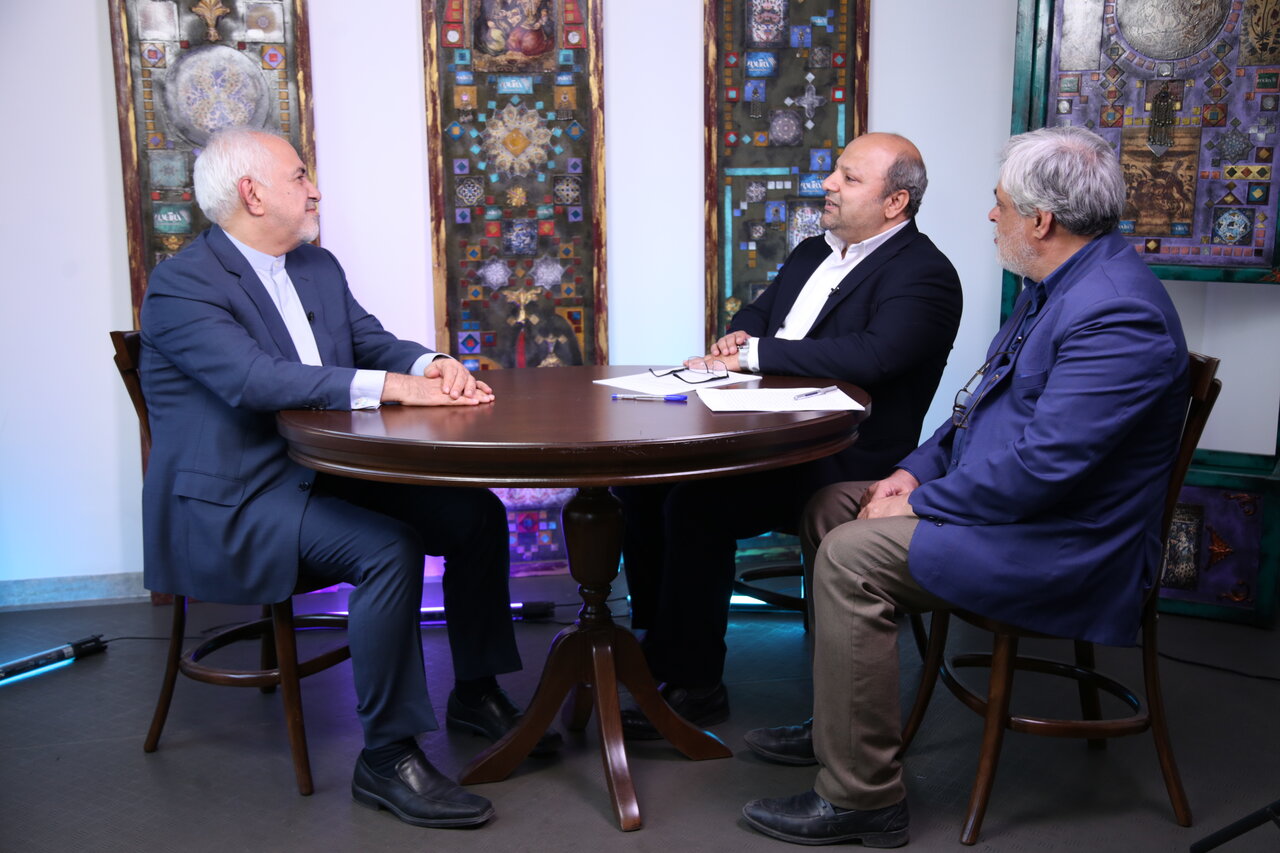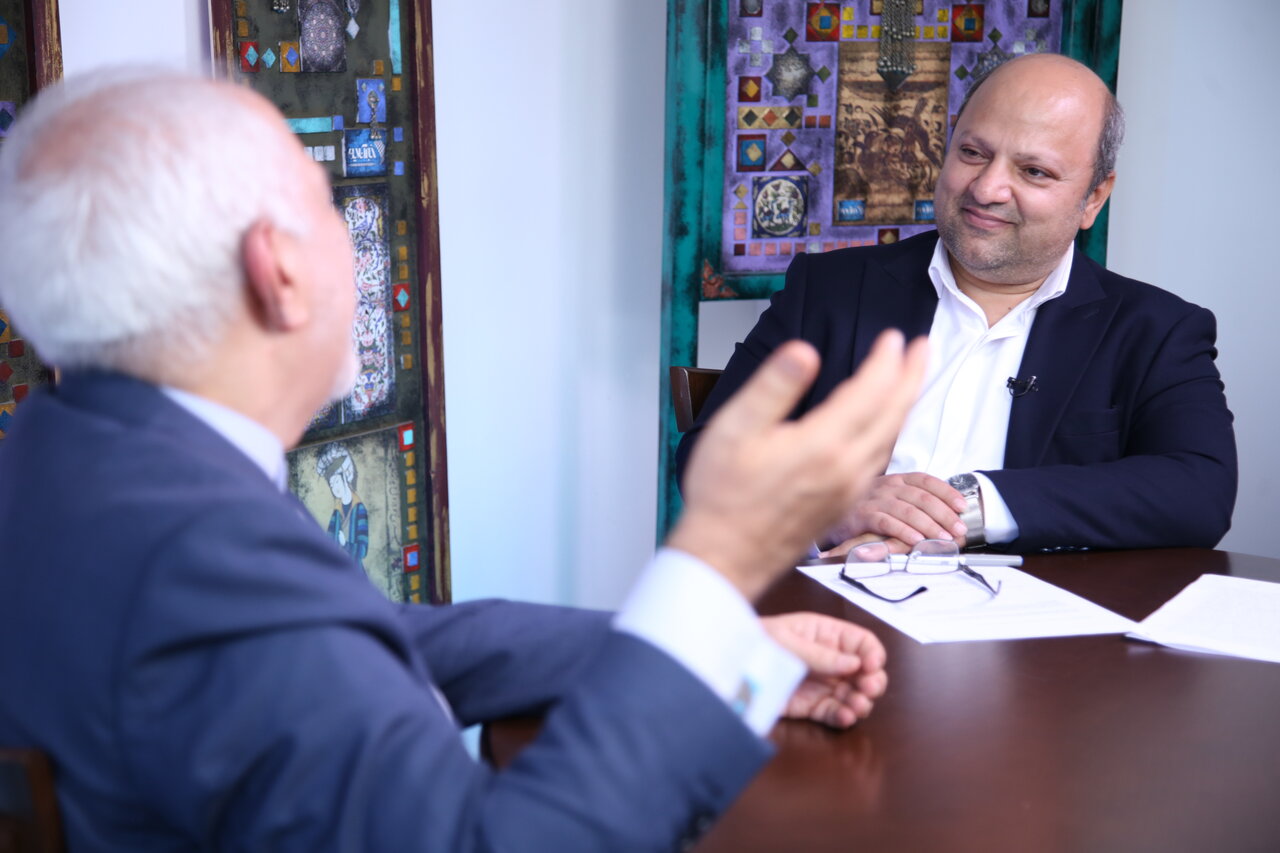In this interview, Dr. Zarif shares his vision for Iran’s foreign policy under the new government, emphasizing the principles of respect, engagement, and cooperation.
With a strong mandate from both the populace and the parliament, the new government is poised to reshape Iran’s international relations. Dr. Zarif discusses the key priorities, including the removal of unjust sanctions, fostering regional stability, and maintaining balanced relations with global powers. He also highlights the importance of mutual respect and equal footing in dealing with international partners.
During the interview, Dr. Zarif addressed the conditions under which Iran might engage in direct negotiations with the United States, reflecting on the statements made by Supreme Leader Ayatollah Khamenei. He emphasized that while the government is clear about defending its interests through negotiations, the specifics of such conditions are not within his purview to declare.
Dr. Zarif also spoke passionately about the ongoing humanitarian crisis in Gaza, criticizing the international community’s response and highlighting the resilience of the Palestinian people. He pointed out that despite the brutal killings and the support the Israeli regime receives from the West, Israel has lost morally and practically in Gaza.
Join us as Dr. Zarif delves into the future of Iran’s foreign policy and the steps the new government will take to ensure peace and cooperation on the global stage. Read the full interview to gain a deeper understanding of Iran’s strategic direction and the challenges and opportunities that lie ahead.

Hello, Dr. Zarif. Welcome to Khabaronline news agency. Thank you for joining us today. It's a great pleasure for me and my colleagues at Khabaronline to have you for this interview. First of all, I should congratulate you on winning the elections. Second, I want to start with foreign policy, which seems to be one of the most important issues right now in the world. Everyone wants to know what is going to happen in Iran’s foreign policy. As a matter of fact, there is a big interest right now in understanding what the new government of Iran is going to do in foreign policy. It would be very kind of you to share with us and our audience the key priorities of the new government in reshaping Iran's international relations.
Well, first of all, I am very happy to be with you. The foreign policy of this government is going to be based on respect and engagement. We demand respect because we have a strong mandate from the populace and our ministers, including my dear friend, the new foreign minister of Iran, who has a very strong mandate from the parliament. The vote of confidence that the members of this government received from the parliament is unprecedented. The average vote of confidence has never been the same in Iran. It has surpassed all other governments previously.
Didn’t you have a better score?
No, no. He had a much better score than I did. The average of the entire cabinet was much higher than any other period in our history. So, it is a very strong popular mandate, a very strong mandate from the parliament. It is a strong government with the support of the leadership and the populace. It is ready to engage. It is up to our partners in the international community to deal with this government based on mutual respect and equal footing. They will see that Iran is ready to engage. Iran seeks peace and cooperation. Tension and conflict are not in our interest. Of course, we never run away from defending our rights if it means resisting, but it doesn't mean that we look forward to that. It means that we are prepared. The eventuality of cooperation is the eventuality that we prefer, but it is not the only eventuality that we are prepared for.
The priorities of this government would certainly be a strong region. The president has repeatedly said that we don't need to waste our resources in unnecessary arms races and competition. We need to develop our resources and allocate them to the improvement of the conditions of our people. So, that's our number one priority. The other priorities of this government would be to engage with the international community to defend Iran's rights and to make sure that the unjust sanctions against Iran, the illegal and unjustified sanctions by the United States against Iran in violation of the nuclear agreement, are removed based on mutual respect and equal footing. So, the keywords in dealing with Iran would be respect. If the Western countries, particularly the rest of the international community, deal with Iran based on respect, they will receive respect reciprocally.
Another point that we have emphasized during the elections is that this government seeks a balanced foreign policy. We never forget our friends who sided with us, who worked with us, who helped us during hard times, but it doesn't mean that we will have exclusive relations with anybody. We will have inclusive relations. We are prepared for inclusive relations with Europe, the Eastern bloc, and the Western bloc. We are prepared to manage our differences with the United States. But that again depends on the readiness of our counterparts. Other countries need to deal with Iran by respecting the rights of the Iranian people, respecting the dignity of the Iranian people, respecting the depth of our history, and recognizing the position that Iran rightfully deserves in regional and international affairs.
You referred to engagement. Given the statements by Supreme Leader Ayatollah Khamenei, could you say the conditions under which Iran would be willing to have any possible direct negotiations with the United States?
I am not in a position to say what the conditions would be, but the leader has been very clear, and the government has been clear that we will not shy away from defending our interests through negotiations.

You are an expert in international law and international organizations. Where are these organizations? Where are Muslim institutions? Where are human rights institutions in the brutal killing of defenseless people of Gaza?
Well, all international organizations have been vocal in condemning Israeli atrocities in Gaza. International organizations, international legal institutions, experts, and thinkers have all spoken out. The killing continues because of the support the Israeli regime receives from the United States and the West, despite witnessing genocide and international crimes being committed in Palestine. But one thing this very dark and sad episode has shown us is that the Israeli regime no longer has invincibility. Two million Palestinians in Gaza are being massacred, but they haven't stopped resisting Israeli aggression. Israel has lost in Gaza. Despite possessing nuclear weapons, illegal nuclear weapons, Israel has lost in Gaza. It has lost morally, practically, and on the front lines. It has been absolutely unable to attain its goals. That is why it is waging a ferocious campaign of massacre to cover its failure and defeat.
Mohammad Javad Zarif thank you for joining us
Thank you.


Your Comment